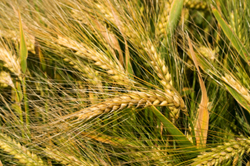Wheat plants with inbuilt anti-infection protection
The EC-funded FUCOMYR project aimed to improve the overall health of wheat cultivars in Europe by preventing fusarium infection and mycotoxin production. The partners set out to determine the methodologies necessary to isolate those wheat populations naturally resistant to fusarium fungal infection. Austrian partners, IFA-Tulln isolated wheat plants that displayed resistance to the deoxynivalenol (DON) mycotoxin. DON is produced by fusarium pathogenic fungi and can have a serious impact on health. Scientists established that resistance to DON is a pretty solid indicator of overall resistance to fusarium infection. The collected data were grouped in a database available for scientists conducting further research in this area. Investigations into how DON resistance genes can lead to a decrease in overall virulence could indeed lead to a series of new wheat cultivars in Europe. Rather than treating infection or using artificial means through which to control it, modern science is now offering methods to boost the plant's genotype. These methods allow plants to achieve resistance and long-term health without further input.







